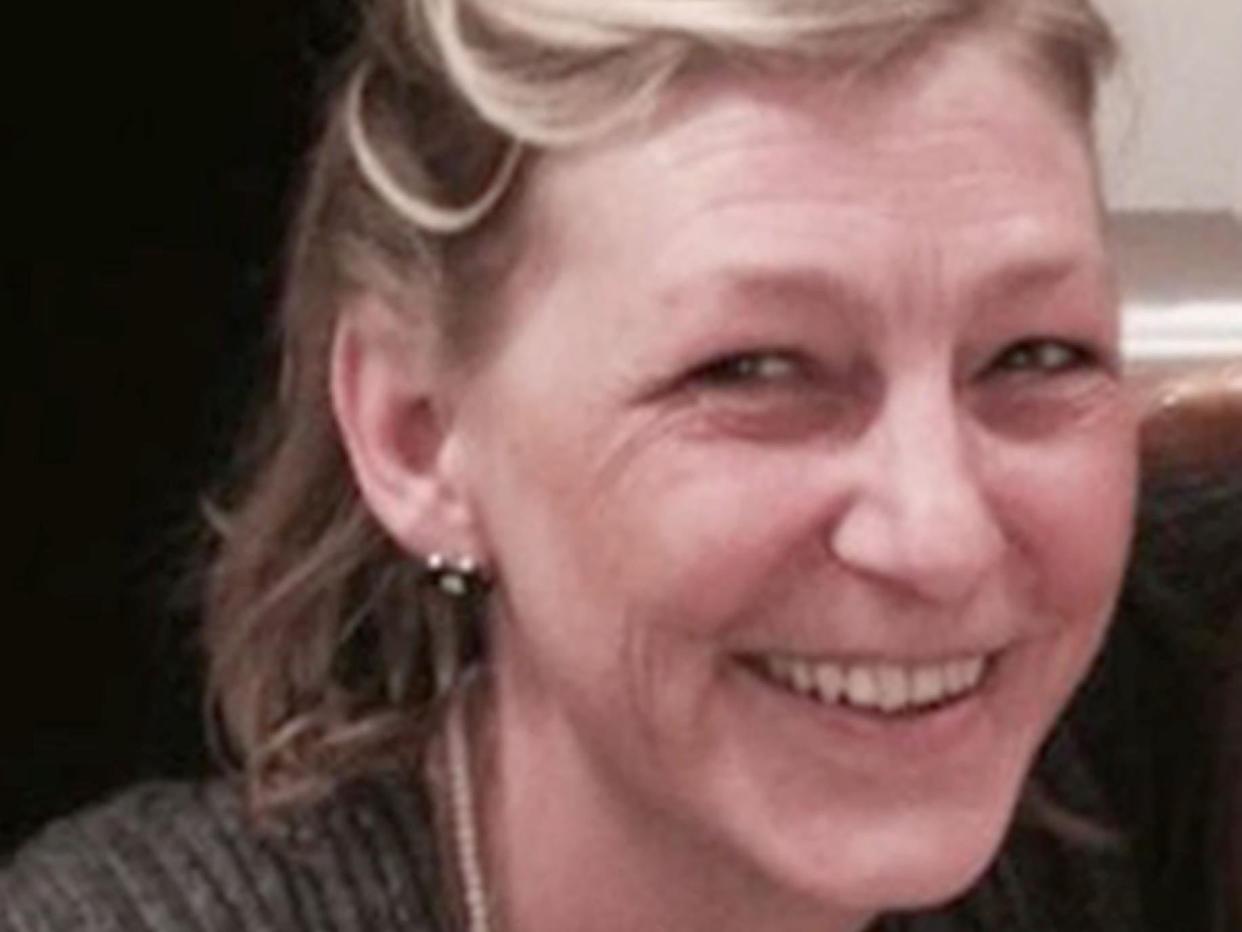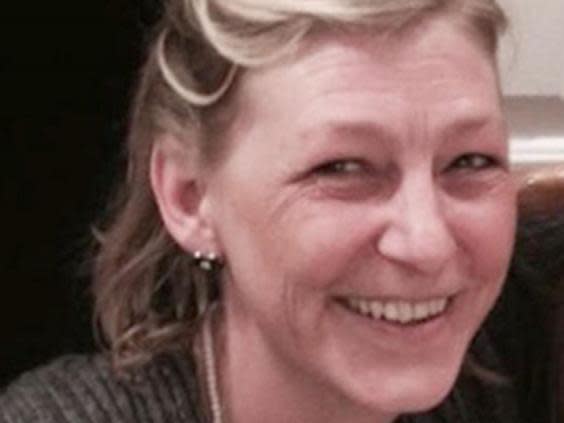Dawn Sturgess death: Inquest must consider if Russian state responsible for Salisbury poisonings, High Court told

The inquest into the death of Dawn Sturgess must consider whether senior members of the Russian state were responsible for the Salisbury attack, the High Court has heard.
The 44-year-old died in July 2018 after being poisoned with novichok that had been concealed inside a counterfeit perfume bottle.
Police believe Ms Sturgess’ partner, Charlie Rowley, accidentally recovered the bottle used to apply the nerve agent to Sergei Skripal’s front door months earlier.
Mr Skripal, a former double agent who passed GRU secrets to MI6, was poisoned on 4 March by two alleged Russian agents.
He and his daughter, Yulia, fell seriously ill but survived the assassination attempt, making Ms Sturgess the only victim killed.
Lawyers representing her relatives said the inquest will be the only opportunity to publicly investigate a “matter of almost unparalleled public concern”.
At a hearing on Tuesday, two High Court judges were urged to quash a coroner’s decision to limit its scope.
But the Home Office said David Ridley, the senior coroner for Wiltshire, was entitled to make the decision and that it would keep the issue under review.
Mr Ridley has said he will not consider whether any Russian state agents, other than the two suspects accused of applying the novichok to Mr Skripal’s door, were responsible for Ms Sturgess's death, or issues relating to the source of the novichok.
Representing Ms Sturgess’ daughter, Michael Mansfield QC said the question of who was responsible for the use of novichok was a matter of “almost unparalleled public concern”.
He said that meant the inquest would not investigate “credible allegations” that other Russian agents were involved or key questions about how the operation was arranged.

Two Russian military intelligence agents, who travelled to Britain under the pseudonyms Alexander Petrov and Ruslan Boshirov, were publicly identified as suspects by the Metropolitan Police but a third man is alleged to have commanded them.
Moscow denies involvement but Theresa May, then the prime minister, said the attack on Mr Skripal had most likely been approved at “a senior level of the Russian state”.
Mr Mansfield argued that Mr Ridley's approach would soon become “unworkable and ineffective” by limiting questions to the movements of Petrov and Boshirov.
“The use of novichok in Salisbury was the first aggressive use of a nerve agent in Europe since the Second World War,” he said in a written case summary.
“It put hundreds of members of the British public at risk and killed Ms Sturgess. The issue of who was responsible for it is a matter of almost unparalleled public concern.
“There is no realistic prospect that the two suspects will face a criminal trial in the UK or that the Russian state will carry out a comprehensive investigation, and no public inquiry into these events has been established.
“Accordingly, the impact of the senior coroner's decision is that there will be no further public investigation of these important issues.”
The two main suspects – whose real names are Anatoliy Chepiga and Alexander Mishkin – were charged with launching the attack on Mr Skripal in September 2018, but had flown back to Russia immediately after the attempted assassination in March.
Both men are subject to Interpol red notices and European arrest warrants, but the prospect of them leaving Russia or being extradited appears slim because the Kremlin continues to deny any involvement.
The suspects gave an interview to state media that generated global ridicule, after they claimed they were sports supplement salesmen who travelled to Salisbury two days in a row because of its “internationally famous” cathedral.
Internet researchers Bellingcat later identified a third GRU officer, Denis Sergeev, who arrived in Britain hours before the two would-be assassins.
Metropolitan Police Commissioner Dame Cressida Dick previously said her officers would “never give up” trying to bring the culprits to justice.
Sir James Eadie QC, representing the home secretary, said judges should dismiss the application.
“The background to Ms Sturgess's death is the attempted murder of Sergei and Yulia Skripal,” he said. “Ms Sturgess was not a target of that attempt - she appears to have been the tragic victim of chance, having come into contact on 30 June 2018 with novichok discarded by the attackers.”
Sir James argued that the coroner was entitled to reach the decisions he had reached regarding the scope of the inquest.
Mr Ridley had also made it clear that he was not reaching a final conclusion but would keep the scope of the inquest under review, Sir James added.
Lord Justice Bean and Mr Justice Lewis will examine rival arguments at a virtual High Court hearing due to end on Wednesday.
Additional reporting by Press Association
Read more
Novichok victim Dawn Sturgess's parents share anger at UK government
Russia’s RT news channel fined £200,000 for impartiality breaches
Salisbury novichok attack ‘commanded by third Russian agent in London’


